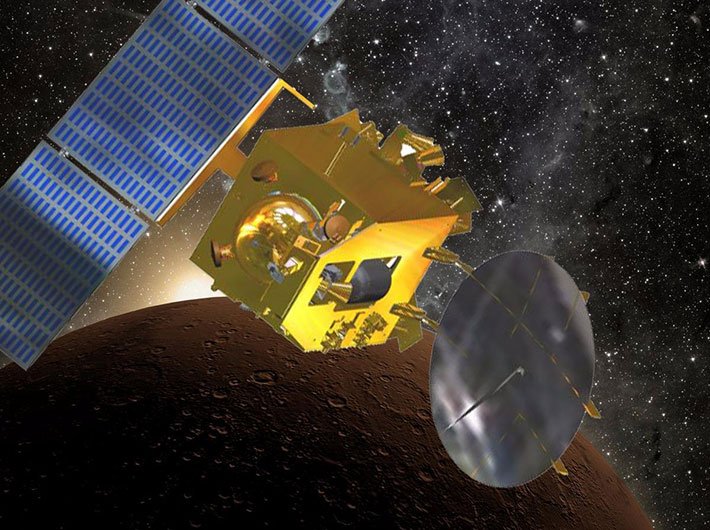This may sound funny but the government should seriously consider setting up a committee to make a case study of Isro, and replicate its model for other public agencies
Beyond all puns and word plays on Twitter and elsewhere, writing about the success of the Mars Orbiter Mission (MOM) is a challenge. It is rocket science, after all. Yet, there are aspects of this historic event beyond its technology. That is why people across the subcontinent are thrilled. Pride in being Indian is understandable at such moments.
The Indian space research organisation (Isro) has indeed succeeded in exceptional terms. MOM was inserted into the Mars orbit in the very first attempt – a unique achievement for a country (not counting the European success). And this feat was achieved with a shoestring budget of about Rs 450 crore. Of course, Isro has always been an outlier and delivered results. The country now has high hopes from the moon mission Chandrayaan-2. The fact that this is not merely a show of technological strength but about putting science and technology ultimately in the service of people – through better management of environment – makes it all the more heartening.
The MOM success is awe-inspiring, and we run out of adjectives to describe it – especially for a country still perceived to be the land of snake charmers. More so, when this country’s educational institutions do not find a place in the list of top-300 from around the world and most of its science and technology institutions have little to show in terms of performance. The MOM budget is less than even that of a Hollywood blockbuster like Gravity, true, but it makes sense: India’s spending on education (around 3 percent of GDP) and on science and technology (around 1 percent) would also not be much more than the budget of a Hollywood studio. If the oft-quoted character of An Anthropologist from Mars looks at the MOM, she would be equally astounded by the paradox of this success.
In that sense, this is as much a moment of pride and joy as of humble introspection. How come the country that can achieve such a unique feat fails day in and day out when it comes to providing decent education and health care to its citizens? If a government-run organisation, with all its weaknesses of bureaucratic decision-making, funds crunch and so on, can deliver a miracle, what about other public agencies that are well funded and tasked to deliver routine targets and not miracles? This may sound funny but the government should seriously consider setting up a committee to make a case study of Isro, and replicate its model for other public agencies.
What makes Isro tick? Is it the question of national pride that puts its scientist and non-scientist staff in mission mode? Then, the task in the social sector would be to first take note of the national shame (former prime minister Manmohan Singh’s words) in having nearly every second child malnourished. Is it the paramount importance given to talent and commitment of its employees? Then ways need to be found to better select and motivate the staff of primary schools and primary health centres who are known to be largely missing.
There are umpteen number of so-called mission mode projects, which are, of course, not in the mission mode. The Isro’s experience so far in general and with MOM in particular needs to be replicated by the whole government sector. That will not provoke outpouring of national pride and smart tweets, but then greater good rarely makes banner headlines.

